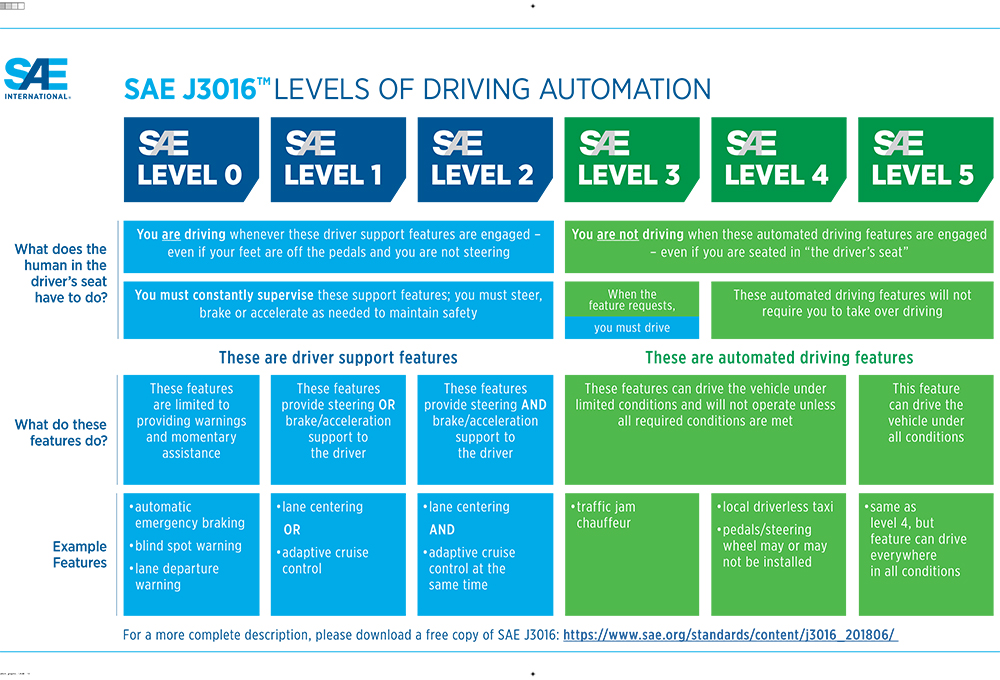The Evolution of Autonomous Vehicles
The Conceptual Beginnings
The idea of autonomous vehicles isn't new. It dates back to the mid-20th century, with early experiments in self-driving cars and automated systems. However, it wasn't until the 21st century, with advancements in artificial intelligence (AI) and machine learning, that the concept began to seem feasible.
As early as 1939, General Motors showcased its vision for future automated cars at the New York World's Fair. Although the technology back then was nowhere near what it is today, humanity's fascination with self-driving cars has been ongoing.
Technological Milestones
Key technological milestones include Google's self-driving car project in 2009, which later became Waymo, and Tesla's introduction of Autopilot. These advancements have brought us closer to fully autonomous vehicles, categorized by the Society of Automotive Engineers (SAE) into levels ranging from 0 (no automation) to 5 (full automation).

The Current State of Autonomous Vehicles
Market Overview
As of 2023, the global autonomous vehicle market is valued at approximately $54.23 billion and is projected to grow at a compound annual growth rate (CAGR) of 31.3% from 2023 to 2030 (source: Grand View Research). This growth is driven by technological advancements, increasing investments, and supportive regulatory frameworks.
Fun Data: Autonomous vehicles are expected to reduce hundreds of thousands of traffic accidents annually and save billions of hours of driving time. Imagine catching a nap or watching an episode of your favorite show during your commute instead of being stuck in traffic.
Key Players
Major players in the autonomous vehicle market include:
-
Waymo: A subsidiary of Alphabet Inc., focusing on developing fully autonomous vehicles.
-
Tesla: Known for its Autopilot and Full Self-Driving (FSD) systems.
-
Cruise: Backed by General Motors, focusing on urban autonomous driving.
-
Aurora: A key player in the commercial autonomous vehicle space, particularly for logistics.
Waymo's self-driving cars have been operating in Phoenix for several years. There, you might see a driverless car pulling up to your house, ready to take you to work.
Business Prospects
Economic Impact
Autonomous vehicles are expected to have a significant economic impact. According to a report by McKinsey & Company, the widespread adoption of autonomous vehicles could generate up to $1.5 trillion in annual economic benefits by 2030 through reduced accidents, increased productivity, and fuel savings.
Imagine a future where your car not only drives you to work but also picks up your kids from school and refuels itself while you're shopping. The convenience could dramatically change our way of life.
Industry Transformation
-
Automotive Industry: Traditional car manufacturers are investing heavily in autonomous technology to stay competitive. This shift is likely to lead to new business models, such as vehicle-as-a-service (VaaS).
-
Logistics and Delivery: Autonomous trucks and delivery vehicles can revolutionize the logistics industry by reducing labor costs and increasing efficiency. Companies like Aurora and TuSimple are already testing autonomous freight solutions.
-
Public Transportation: Autonomous buses and shuttles can enhance public transport systems, making them more efficient and accessible.
-
Ride-Hailing Services: Companies like Uber and Lyft are exploring autonomous ride-hailing services, which could lower operational costs and provide more affordable rides.
If autonomous vehicles become mainstream, your morning commute might look like this: watching an episode of your favorite show, sipping on your coffee, or even taking a nap, rather than honking in a traffic jam.
Regulatory Landscape
Regulatory frameworks are evolving to accommodate autonomous vehicles. Governments are working on safety standards, liability issues, and data privacy concerns. For instance, the European Union has introduced regulations to ensure the safe deployment of autonomous vehicles on public roads.
Expert Insight: Waymo's CEO has stated, "We are working with regulatory bodies around the world to ensure the safe integration of autonomous vehicles into society." This highlights the proactive role tech companies are playing in shaping regulations.
Challenges and Considerations
Safety and Reliability
The safety of autonomous vehicles remains a critical concern. Ensuring that these vehicles can handle complex driving scenarios and unpredictable human behavior is paramount. Companies are investing in rigorous testing and validation processes to address these challenges.
One of the biggest challenges in testing autonomous vehicles is dealing with "road rage" drivers and jaywalkers. These real-world scenarios are far more complex than any lab conditions.
Ethical and Legal Issues
Autonomous vehicles raise ethical questions, such as decision-making in unavoidable accident scenarios. Legal issues, including liability and insurance, also need to be addressed to facilitate widespread adoption.
In the movie "Minority Report," autonomous cars can navigate through the city, avoiding obstacles and even performing aerial maneuvers. While current technology isn't that advanced, the direction is similar.
Future Outlook
Technological Advancements
Further advancements in AI, sensor technology, and connectivity will drive the development of more sophisticated autonomous vehicles. Innovations such as 5G connectivity and edge computing will enhance vehicle-to-everything (V2X) communication, improving safety and efficiency.
Future autonomous vehicles might receive software updates just like your smartphone, adding new features and improving existing systems annually.
Market Expansion
As technology matures and regulatory barriers diminish, the market for autonomous vehicles will expand. This will create new opportunities for businesses and entrepreneurs in various sectors, from automotive manufacturing to software development.
Question: Do you think autonomous vehicles will become mainstream in 5 years, 10 years, or longer?
The Road Ahead
The journey from concept to reality for autonomous vehicles is well underway, with significant commercial prospects on the horizon. As this transformative technology continues to evolve, it promises to reshape industries and create new economic opportunities, making it an exciting area for businesses and investors alike.
References
-
-
-

